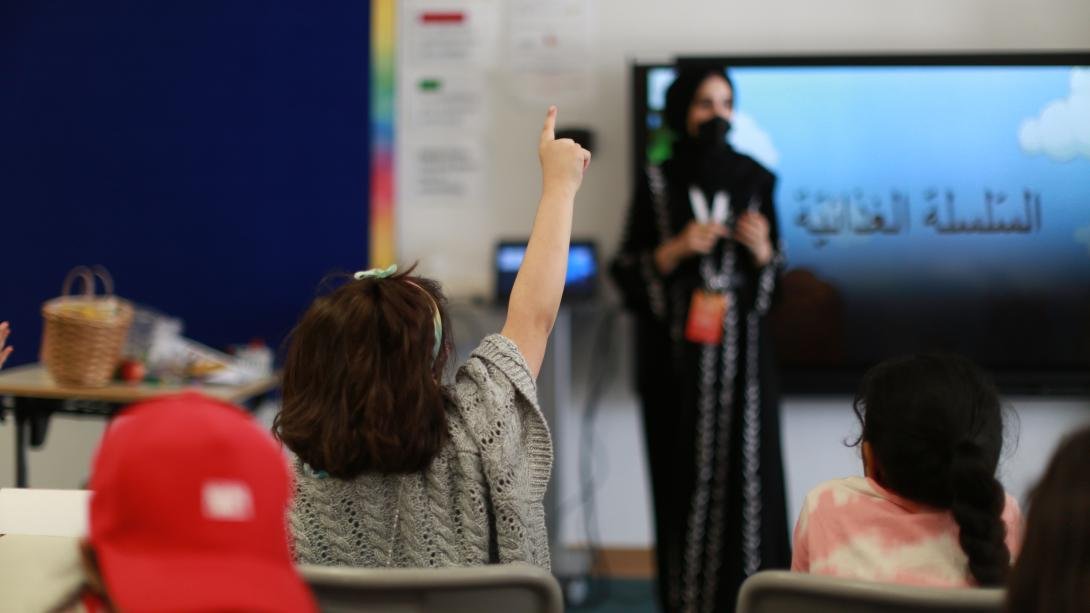Written by Jody Britten, Ph.D. | Team4Tech Foundation | Basic Education Coalition member
Jody is a member of BEC’s EdTech working group. Stood up in 2020, this working group has held regular technical exchanges with BEC’s members to share best practices, challenges, and lessons learned from the EdTech space. The group has collaborated on conference presentations and panels, organized and shared at Fail Fests and webinars, and carried out a BEC-wide EdTech survey “Governments’ Organizational Responses to COVID-19”.
Generative Artificial Intelligence (AI) has significantly impacted global education in the past year. From advanced algorithms and personalized learning materials to data analysis and automation of administrative tasks; generative AI has brought positive changes to education. Even with all the advances and opportunities, there is still work to do to ensure that generative AI is developed and used ethically and transparently.
Team4Tech is a nonprofit impact accelerator that leverages technology to drive positive change in education. By combining the power of technology, education, and collaboration, we use human-centered design to ensure technology solutions are developed with the aspirational needs of our network of education-focused nonprofit organizations at the forefront. Through our collaborative efforts, we have successfully implemented training and created resources that help global partners harness the potential of generative AI to enhance learning experiences and support educators.
Over the past ten years, we have witnessed first hand how human-centered design can play a crucial role in supporting the inclusive design and development of educational technologies. As a multidisciplinary approach that places user needs, behaviors, and experiences at the epicenter of the design and development process, human-centered design is rooted in a deep researcher base that goes beyond mere usability to foster meaningful interactions and sustainable engagement.
With members of our community of practice representing more than 85 countries and 500 unique non-government organizations (NGOs), Team4Tech has engaged our community in meaningful conversations and training opportunities around generative AI. Through that process over the past six months, we have identified five salient considerations for developers and users alike which have the potential to positively impact the use, design, and development of these tools as we move forward.
Consideration 1: Ethical Implications of Autonomy
Incorporate ethical considerations from the outset, bringing accessibility and equity to the table during initial design and pro-typing.
Utilize frameworks like Ethical-by-Design or Value-Sensitive Design to support design teams that lack global experiences or perspectives.
Address questions about agency, consent, and data privacy and be transparent with where, how, and when data is shared, stored, and used for AI training.
Consideration 2: User-Centric Personalization
Balance personalized experiences with user cognitive load, cultural context, and privacy expectations.
Ensure pathways to delete data and validate personalization techniques.
Prioritize equity in personalization practices, being diligent and transparent about how users can customize, adapt, and train generative AI tools to better meet their needs.
Consideration 3: Interdisciplinary Collaboration
Adopt an interdisciplinary approach to integrate generative AI with human-centered design.
Include domain experts in machine learning, UX design, ethics, and behavioral psychology.
Foster open community conversations about AI by involving diverse stakeholders and generate opportunities for feedback loops with end-users.
Consideration 4: Algorithmic Transparency
Strive for transparency in decision-making processes without compromising intellectual property.
Address questions about algorithm training and the inclusion of diverse global audiences.
Test algorithms with specific audiences in mind and share the test-user demographics to demonstrate attention and awareness of bias.
Consideration 5: Usability and Accessibility
Conduct rigorous usability testing to ensure broad accessibility and transparency in how population differences have been accounted for in AI training.
Prioritize accessibility features and involve end-users in collecting continual feedback.
Routinely address the data and power consumption that is needed to use and build generative AI tools and applications.
As we continue to navigate the intersection of generative AI and human-centered design in education, it is crucial that we foster an ongoing dialogue and collaboration among users and developers. By working together, we can ensure that generative AI tools are designed and used equitably, promoting inclusive learning experiences for all.
To contribute to this dialogue, users and developers can engage in open conversations and advocate for ethical guidelines. Participate in online forums, communities, and conferences dedicated to discussing generative AI and human-centered design in education. Share insights, ask questions, and learn from others to enrich the collective understanding of equitable design practices. And encourage the development and adoption of ethical guidelines and standards for generative AI in education. Advocate for transparency, fairness, and inclusion in AI algorithms and decision-making processes. By promoting ethical considerations, we can shape the future of generative AI to prioritize the well-being and empowerment of learners and educators.
Team4Tech is continually exploring the possibilities of generative AI while ensuring that it aligns with the principles of human-centered design and equity. By embracing these important considerations and taking action, we are doing what we can to pave the way for a future where technology truly enhances education for everyone.
You can see cataloged resources focused on AI in global education that are continually curated by Team4Tech’s Director of Learning Technologies here.




